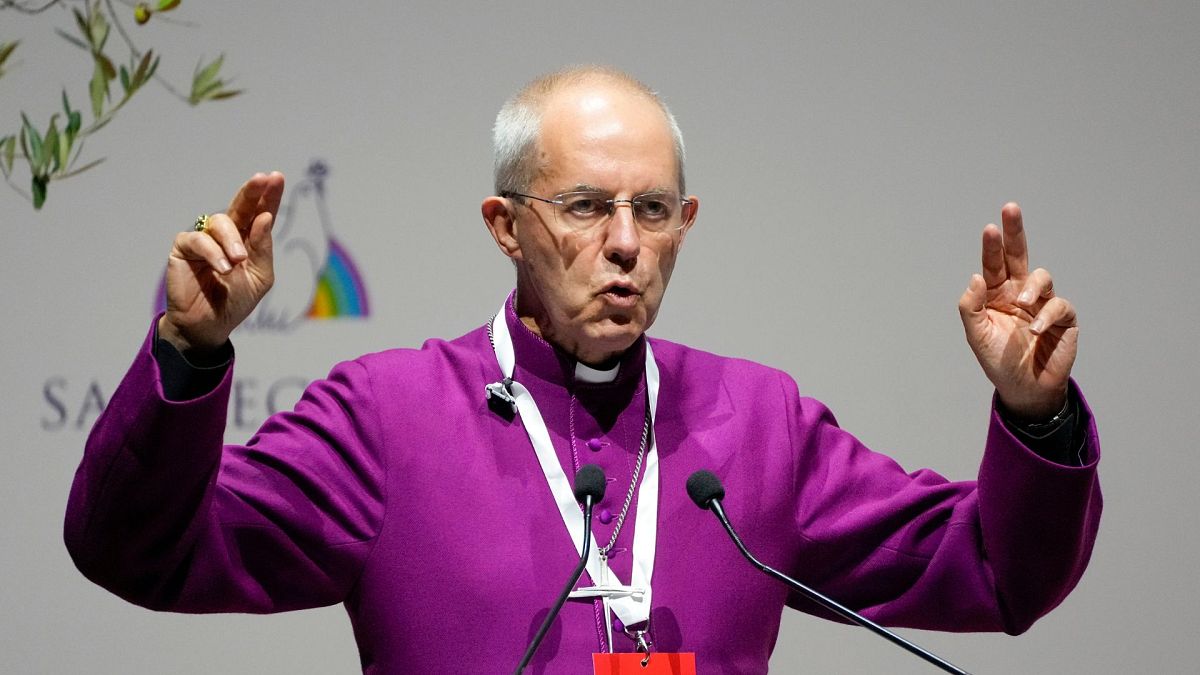The resignation of Archbishop of Canterbury Justin Welby has sent shockwaves through the Church of England and the Anglican Communion. Welby stepped down following an investigation that revealed he failed to promptly report serial physical and sexual abuse by a volunteer at Christian summer camps. The pressure on Welby intensified after the investigation’s findings were made public, sparking outrage over the church’s lack of accountability. Critics, including Newcastle Bishop Helen-Ann Hartley, called for his resignation, with a petition circulating within the church’s national assembly urging him to step down.
One of the primary catalysts for the backlash against Welby was his handling of the case of John Smyth, a prominent figure who sexually and physically abused young men at Christian camps in the UK, Zimbabwe, and South Africa for decades. Survivors of Smyth’s abuse expressed relief at Welby’s decision to resign, viewing it as a step towards accountability for the church’s failures in addressing abuse. Andrew Morse, a survivor of Smyth’s abuse, sees Welby’s departure as a crucial opportunity for the church to stand with victims of abuse and address shortcomings in its response to such cases. The resignation of the Archbishop of Canterbury underscores the Church of England’s ongoing struggle with historical sexual abuse and the need for greater accountability.
The resignation of Welby comes on the heels of a 2022 report from the Independent Inquiry into Child Sexual Abuse that highlighted systemic issues within the Church of England. The report found that the church’s culture of deference and its tendency to support alleged perpetrators over victims created an environment where abuse could occur unchecked. The findings of the report further fueled calls for sweeping changes within the church to address historical instances of abuse and prevent future cases from taking place. Welby’s resignation is seen as a necessary step towards reforming the church’s approach to handling abuse cases and promoting accountability within its ranks.
Welby’s decision to step down has been met with mixed reactions within the Church of England and the wider religious community. While some have praised his willingness to take responsibility for the church’s failures in addressing abuse, others have criticized the way in which his resignation was handled. The timing of Welby’s announcement, coming after the publication of the abuse investigation’s findings, has raised questions about the motives behind his decision to resign. Some have called for a more transparent and thorough investigation into the handling of abuse cases within the church to ensure that all those responsible are held accountable for their actions.
Moving forward, the Church of England will need to navigate a path towards healing and reconciliation in the wake of Welby’s resignation. The church must work to address the concerns of abuse survivors and implement changes that promote greater transparency and accountability in its response to abuse cases. Welby’s departure presents an opportunity for the church to take a proactive stance in addressing historical instances of abuse and ensuring that victims of abuse receive the support and justice they deserve. As the church grapples with the fallout from Welby’s resignation, it must commit to upholding the values of justice, compassion, and accountability in all aspects of its work to prevent further instances of abuse from occurring in the future.










